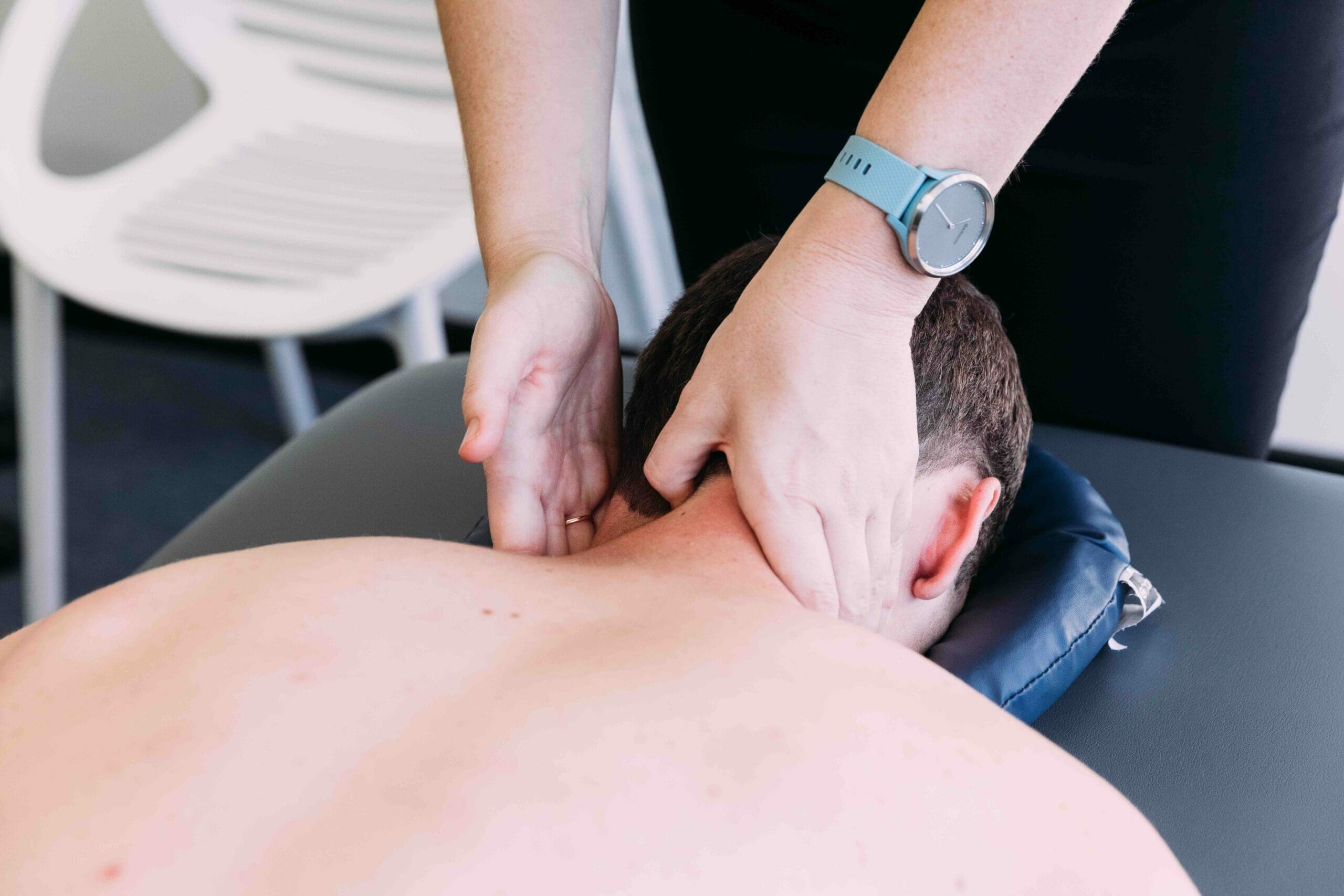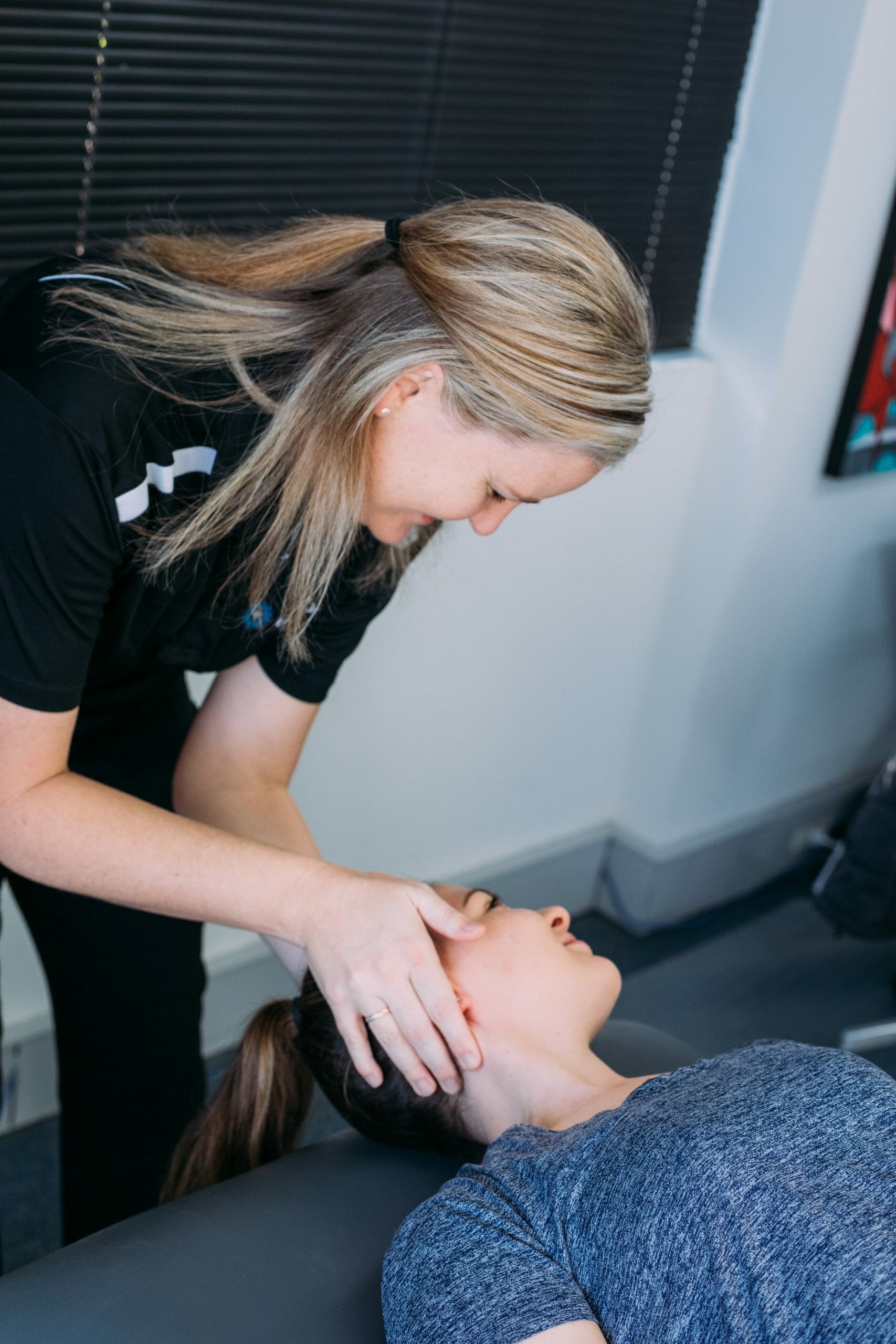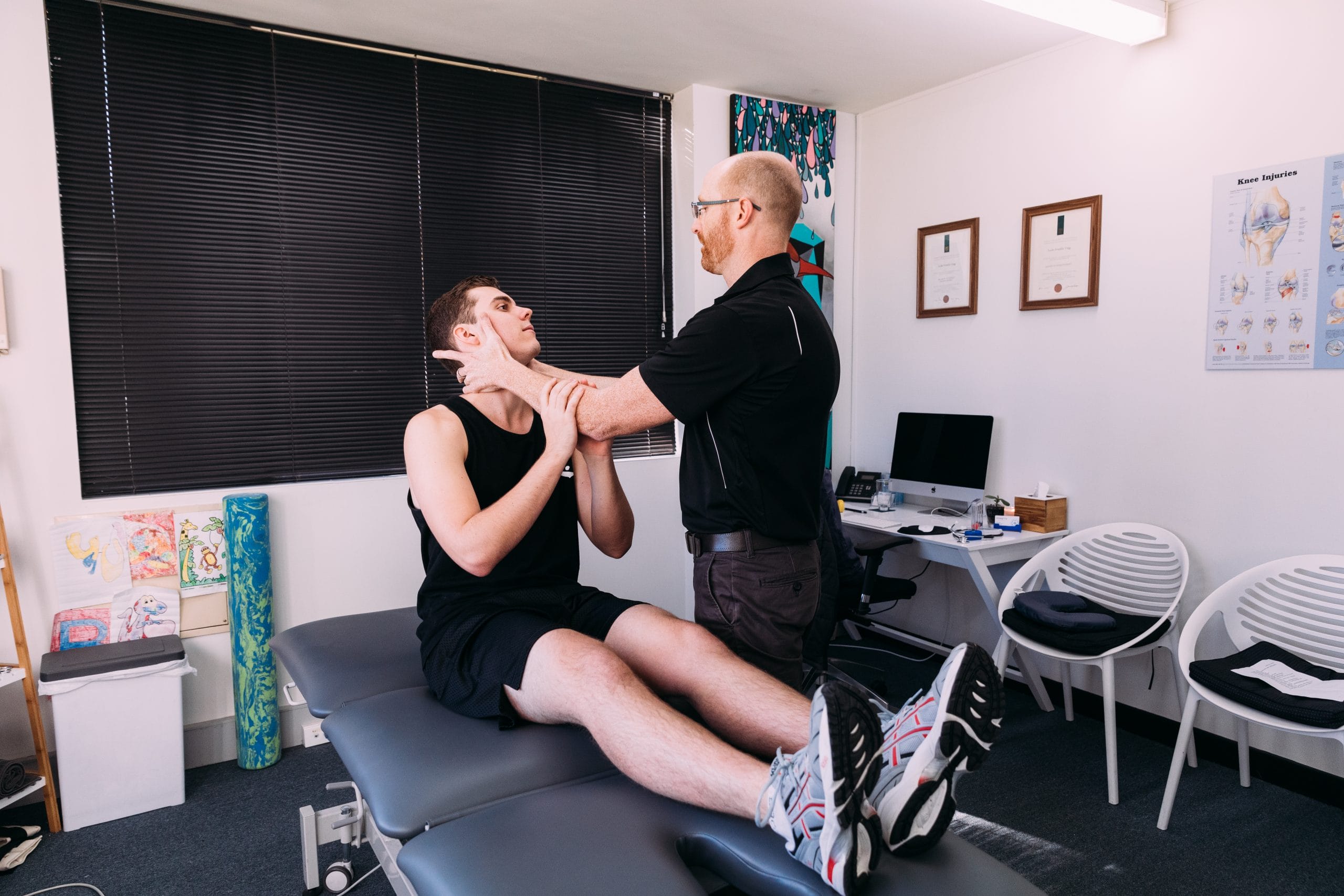
Dealing with persistent neck pain or headaches that just won’t quit?
At Integrity Physio, we know how these issues can impact your everyday life—whether it’s stopping you from focusing at work, keeping you from enjoying activities you love, or making even simple tasks feel overwhelming. But relief is within reach.
Our dedicated team of neck pain physiotherapists are here to help you feel better, faster.
We don’t just address your symptoms; we find the root cause of your pain and create a tailored plan to get you back to living life on your terms.

How Our Physiotherapists Can Help With Neck Pain and Headaches
We take a targeted approach to physiotherapy, focusing on relieving your pain, improving mobility, and reducing the tension that triggers neck pain and headaches. Rather than simply addressing the surface symptoms, our goal is to get to the root of the problem, ensuring that your relief is long-lasting.
Our physio neck pain treatment plans may include hands-on manual therapy, personalised exercises, and posture adjustments—all designed to meet your individual needs. Whether you’re suffering from persistent neck pain, tension headaches, or migraines, we take a whole-body approach to help you achieve lasting recovery and overall wellness.
Each session brings you one step closer to reclaiming your comfort and returning to the activities that matter most to you.
Everything you need to know about physiotherapy for neck pain, from symptoms and causes to treatment.
- Muscle Tension: Poor posture, prolonged sitting, stress, poor sleep, or awkward sleeping positions can cause tightness in the neck and shoulders. This tension often results in neck pain and tension headaches, which manifest as a dull, aching sensation that radiates from the neck to the head.
- Whiplash Injuries: Sudden force, such as from a car accident, can cause whiplash. This injury can lead to neck pain, muscle spasms, headaches, and sometimes numbness or pins and needles radiating into the arms.
- Disc Injuries (Slipped Disc): The discs in your neck act as cushions between the vertebrae. When a disc tears, bulges, or herniates, it can press on nearby nerves, causing neck pain that radiates into the head, shoulders, or arms, occasionally resulting in headaches and nerve-related symptoms like numbness or weakness.
- Joint Dysfunction: Stiff joints in the neck can restrict movement and lead to pain. This often contributes to cervicogenic headaches—headaches that stem from problems in the neck, particularly near the base of the skull.
- Osteoarthritis: This age-related degeneration of the neck joints can lead to chronic pain, stiffness, and headaches. Severe osteoarthritis may also compress or irritate nerves, causing numbness, weakness, or persistent headaches.
- Aches or stiffness that can limit your neck's range of motion
- Sharp or burning pain localised in the neck or radiating to your shoulders and arms
- Headaches that originate from the neck or upper back
- Numbness, tingling, or weakness in the arms, often caused by nerve irritation
- Muscle spasms or tightness in the neck or surrounding areas
- Difficulty holding your head up due to fatigue or weakness in the neck muscles
- Improve your posture by aligning your head and spine when sitting, standing, or working.
- Take frequent breaks from prolonged sitting or desk work to stretch and move.
- Strengthen your neck through regular exercise to provide better support.
- Create an ergonomic workspace that reduces strain on your neck and back.
- Reduce stress with relaxation techniques like mindfulness or yoga, as stress can lead to neck tension.
- Your pain is accompanied by numbness, tingling, or weakness in your arms.
- You experience persistent headaches that don’t improve with over-the-counter medications.
- Your neck pain is worsening, or it's limiting your range of motion.

Everything you need to know about physiotherapy for neck pain, from symptoms and causes to treatment.




